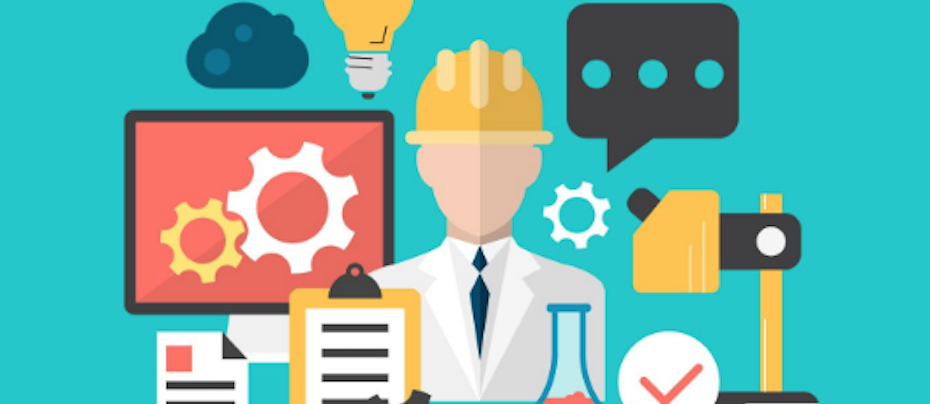Future of Work Technology: Will It Ever Make Humans Irrelevant?
A central theme in dystopian science fiction stories (and now when we talk about future of work technology) is the fall of humankind to machines.
At the core of this alternate reality is this question: Can humans and the machines we create co-exist? It’s a bit of an existential crisis for us; one the one hand we are the proud creators of technology that is learning and growing, but at what cost? Will we humans become irrelevant, replaced by our own creations?
While we don’t need to worry about a machine or android uprising, we do need to face impending realities. In some industries, routine, mundane tasks are already being automated. Will some employees be replaced by the outcomes of our technological explorations? The answer is nuanced. There are, however, emerging themes and insights from research that show a promising future for us workaholic organic beings. It will be different.
Future of Work Technology and Jobs
To tackle wicked or difficult problems requires employees to work together. In fact, teamwork is the predominate way projects are implemented today. It’s when you merge the advantages from technology–artificial intelligence or machine learning–and our ability to collaborate that the future of work gets fascinating, even exciting.
Take for example the start-up company, Cogito. Founders, Joshua Feast and Dr. Sandy Pentland, lead the company to design their artificial intelligence to help agents become better human beings. How? “Cogito detects human signals and provides live behavioral guidance to improve the quality of interaction,” says the company’s website copy.
Imagine you’re helping a customer on the phone. Your customer is getting upset and begins yelling at you. You start to raise your voice in response. Cogito’s technology can detect the change in your voice and prompt you with ways to de-escalate the interaction. In an interview I had with Feast, he characterized Cogito’s value by “[helping] people be more charming in conversations.” Technology and humanity come together to create a better customer and employee experience.
Transforming How We Work
In a 2018 discussion paper, consulting firm McKinsey & Company list the industries that will experience significant tech-driven transformations: banking and insurance, manufacturing, healthcare, retail, for example. These transformations will not only effect tasks but also bring humans together differently.
Consider the banking and insurance industries. It’s entirely plausible that the tasks tellers perform will be automated. However, that doesn’t necessarily mean teller jobs will go away. Remember, we are working in teams more than ever before. The teller role could be redesigned differently to address needs like improving the customer experience. Consequently, if we’re working more in teams, there is an increased expectation that we work better together. McKinsey identified that employees and the company’s leadership need to be stronger in social, emotional, and cognitive thinking skills. These skills, often considered soft skills, are already in short supply in the talent pool.
In our work with clients at WorqIQ, we see a significant skill gap in designing, leading, and adapting to change. We also are seeing more agile teams forming throughout companies, requiring employees to learn to work without a formal team lead. This raises the need for engaging in radical candor when exploring solutions and resolving a conflict. High performing cultures have no tolerance when people can’t learn to speak up for themselves and, at the same time, own their mistakes. This double whammy inserts toxicity into workplace climates.
Preparing Employees for Tech-Fueled Change
The changes in the contents of how work is done can be unsettling. At the same time, there are new opportunities. What is important now is how you prepare yourself, and your team for shifts in the way work gets done.
To help you and your team be ready, below are some areas to investigate. You’re looking for skill gaps, biases, and change readiness. Your goal as a people leader is to prepare your team for changes.
Learning and Development | How active are you and your employees in learning new technical skills, soft-skills, too? Learning and development don’t only mean workshops. It can be on-the-job learning or placing employees in teams that will require them to learn to work better with others.
Change Agility | Change is emotional. Spend time helping employees learn how they respond to change. Then coach them to use tactics that help them get past resistance or denial of change.
Focus on the Climate | In my book, The Optimistic Workplace, I highlight how essential it is for employees’ immediate managers to create a positive work environment. If the climate is negative, stale, or toxic, change of any type will produce heightened levels of drama.
Technological advancements aren’t a threat. Our unpreparedness of their impacts is.
The meaning you and your company give to the inevitable will either hinder or accelerate growth. Technological advancements will require us to do the one thing we’re still better at–being human. The savvy companies are already learning how to integrate our tech creations with the elegant touch in our humanity.
This post originally appeared in Shawn’s weekly column on Inc.com.


